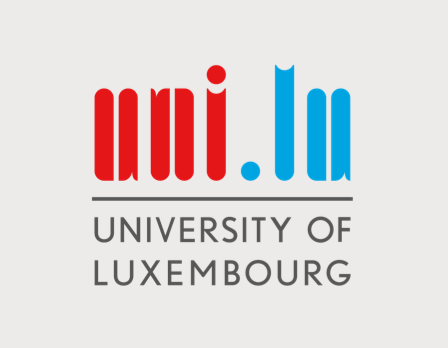Alizée Eggermont’s interest in investment funds began when she had an opportunity to intern in a law firm’s Investment Fund Management department.
The practical experience and perspective convinced Alizée – who had already earned her Bachelor’s in International and European Law in July 2023 – to pursue a master’s in the topic.
Luckily for the Luxembourg native, the University of Luxembourg’s Faculty of Law, Economics and Finance (FDEF) had announced that the new Master in Investment Funds Law programme – the first of its kind in Europe – was set to begin in September 2023. Here, the programme builds on the joint first-year of all seven Master’s in law specialisations, providing the necessary foundation to pursue the second-year programme. The second year is dedicated to investment funds law, covering real estate funds, private equity funds, debt funds, long-term European funds, fintech and cross-border distribution, and links fundamental and applied research. Taught in French and English, students gain knowledge of legal vocabulary in two languages, one key reason why Alizée chose this programme.
Luxembourg’s standing as a world-leading legal and financial centre opens the doors to many opportunities. Between the many international companies with head offices here and the private and institutional partners offering strong support to the faculty through a variety of scholarships, internships and fellowships, students here not only get to bridge knowledge and practice, but also get a strong start to their future careers. This can explain why faculty graduates here are highly employable — more than 80% of its master’s graduates land a job within a year after graduation.
To enhance the employability of graduates, the Master’s programme in Investment Funds Law includes a mandatory internship in funds law; fortunately, opportunities in Luxembourg are abundant. Graduates can pursue careers as investment funds lawyers, compliance offers, jurists, work for European or international institutions or continue with doctoral studies.

More than 80% of FDEF master’s students land a job within a year after graduation. Source: University of Luxembourg
But career-readiness isn’t the only reason students choose the University of Luxembourg’s FDEF.
Its Department of Law ranked #68 in the Times Higher Education’s World University Rankings 2024 by subject: law for the second year in a row. This puts it among the top 25% of universities in the THE ranking in this subject. Here, students learn from faculty members at the forefront of developing transformative answers to legal challenges in Luxembourg and beyond.
In particular, the Investment Fund Law programme benefits strongly from having a Chair in Investment Funds Law in collaboration with Arendt and Elvinger Hoss Prussen; Professor Isabelle Riassetto is known for her dynamic teaching style that renders any mundane topic interesting.
“You can see her passion for the field and her years of experience – she introduces every topic to the student with ease, whether we already had some notions of investment funds or not – and the technical terms and the field itself do not make this any easier,” says Alizée.
Arendt & Medernach partner Isabelle Lebbe is another educator with high praise by students. Teaching the Luxembourgish Investment Fund Law module, she ensures that students understand and are well-versed in the various topics throughout the history of investment funds in Luxembourg.
“Many of the professors are working professionals, adding to an already excellent curriculum a practical and up-to-date aspect,” says student Max Scheuer. “The most pertinent example of this would be Ms. Lebbe’s module, as she bases the course on current-day practices rather than just general theory.”
What makes teaching here even more effective is the small class sizes. The class of 2023-24 only has 25 students, which means a small student-to-faculty ratio, allowing for special attention and a chance to strengthen bonds within the cohort.

The Department of Law ranked #68 in law in 2023 and 2024, according to the Times Higher Education World University Rankings. Source: University of Luxembourg
Visits to faculty partners, like law firm Arendt & Medernach, give students valuable insight into the industry too.
“During the visits, we would discuss topics that we may not have learned much about but are important in the investment fund field, like anti-money laundering and combating the financing of terrorism,” says Eggermont; “It was an interactive session with the experts during which they explained certain subjects, then asked us to answer various questions and analyse various case studies. The presenters conveyed technical knowledge in a way that was easy to grasp.”
Scheuer credits the programme’s “Meet and Discover” networking sessions for providing opportunities to join major law firms in Luxembourg, a professional development moment that he is making the most out of. This is particularly advantageous to students, allowing them to get their foot in the door while still studying.
FDEF is also a place for students to build their international network.
Over 2,300 students from 97 countries and academic staff from 18 different nationalities call this Faculty home. Active practitioners, visiting scholars and guest professors are frequent guests. This global, multicultural setting sets the stage for success as graduates have the confidence and communication skills to navigate the world.
Follow the University of Luxembourg on Facebook, Instagram, YouTube, and LinkedIn.
Follow the Faculty of Law, Economics and Finance of the University of Luxembourg on LinkedIn and on Facebook.













